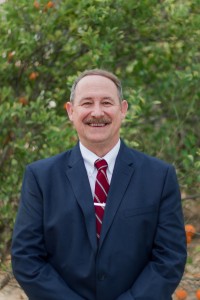
Dr. Matthew Ciomperlik
Biographical Sketch
Matthew A. Ciomperlik, Ph.D., Laboratory Director
USDA APHIS PPQ Science & Technology Mission Laboratory
22675 N. Moorefield Road, Edinburg, TX 78541
Office: 956-205-7667, Fax (956)-205-7680 Email: matt.a.ciomperlik@usda.gov
Matthew Ciomperlik is currently the Director of the USDA-APHIS-PPQ Science & Technology Mission Laboratory at Moore Airbase. He graduated from Texas A&M University (’95) with a Ph.D. in entomology with emphasis in biological control. He received both his B.S. and MS in biology from the University of Texas, Pan American campus. He started working for the Mission Laboratory (’86) and has been involved in a number of national PPQ domestic and emergency pest management programs including; Colorado potato beetle, alfalfa weevil, sweet potato whitefly, glassy-winged sharpshooter, and Asian citrus psyllid that have had major impacts in the Rio Grande Valley and subtropical agriculture worldwide. He worked as a co-project leader of the silverleaf whitefly biological control program, evaluating and establishing natural enemies of this pest insect in the LRGV. These natural enemies of silverleaf whitefly have enabled sustainable local production of many important crops including watermelons and cotton. He became involved in offshore pest initiatives in 1998 attempting to identify key pests of economic importance to the US like chili thrips, giant African snail, Cuban slug, Cactus mealybug, and others. By controlling these pests off shore, the impacts of these pests were reduced or eliminated before they reached the LRGV or other parts of the U.S. mainland. He has established collaborative pest management programs in Argentina, Barbados, Chile, Dominica, Dominican Republic, St. Vincent, Puerto Rico, and Rota (CNMI). Dr. Ciomperlik served as an Entomologist from 1993 to 2000, and as an Entomologist/Lead Scientist from 2000 – 2007. In 2010, he became the Laboratory Director of the PPQ Science & Technology Mission Laboratory, with responsibility for supervising the research activities of 10 scientists, 14 technicians and 3 administrative support staff. The laboratory’s major emphasis in the LRGV has been the development of integrated pest management strategies for controlling agricultural pests of economic significance, molecular diagnostics of invertebrate pest species, support of sterile insect production methods for Mexican fruit fly, and development of methods for agricultural use of unmanned aircraft systems. The laboratory has also been heavily involved in mass rearing a parasitoid for release against ACP to help slow the spread of citrus greening in the LRGV of Texas. In 2016, he took on additional responsibilities as the Laboratory Director for the S&T Phoenix Laboratory in Phoenix, AZ. The Phoenix lab staff (6 scientists, 6 technicians, 1 admin) are involved in rangeland grasshopper management and methods development, pink boll worm eradication through SIT, Unmanned Aerial Systems Technology Development, and recent project additions include SIT of navel orange worm, and biological control of coffee berry borer. He has been a member of the SAES for the last 16 years, served as a section director for vegetables, and co-authored numerous articles in the Journal of Subtropical Agriculture and Environments. Dr. Ciomperlik’s steady leadership at the Mission Laboratory and numerous collaborations with scientists at the Univ. of Texas – Rio Grande Valley, Texas A&M Kingsville Citrus Center, USDA-ARS, Texas Agrilife
and South Texas College has led to significant benefits to agriculture in the LRGV and throughout the subtropics.